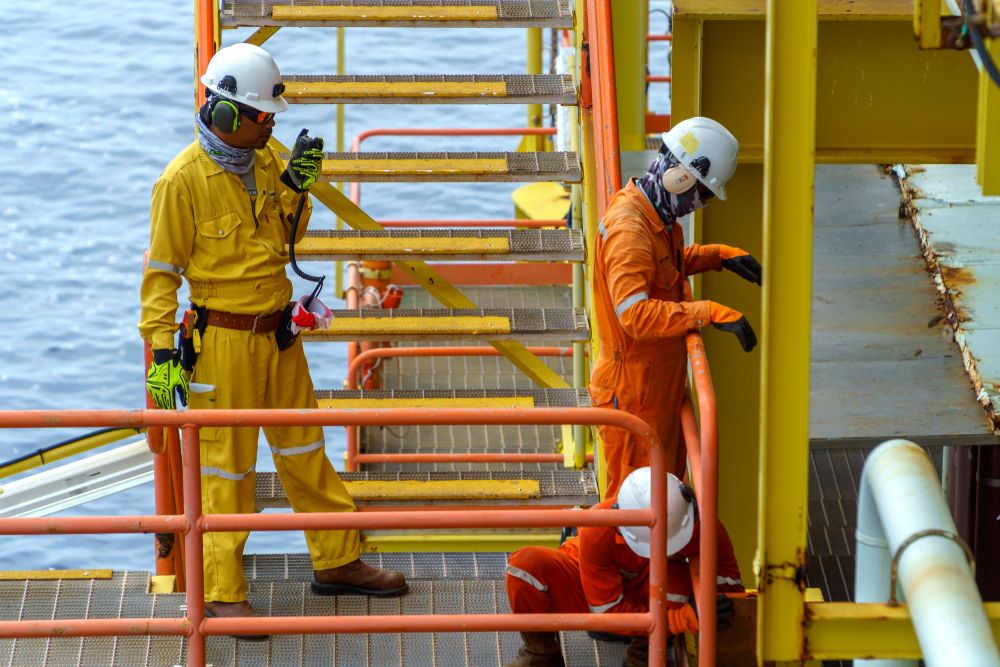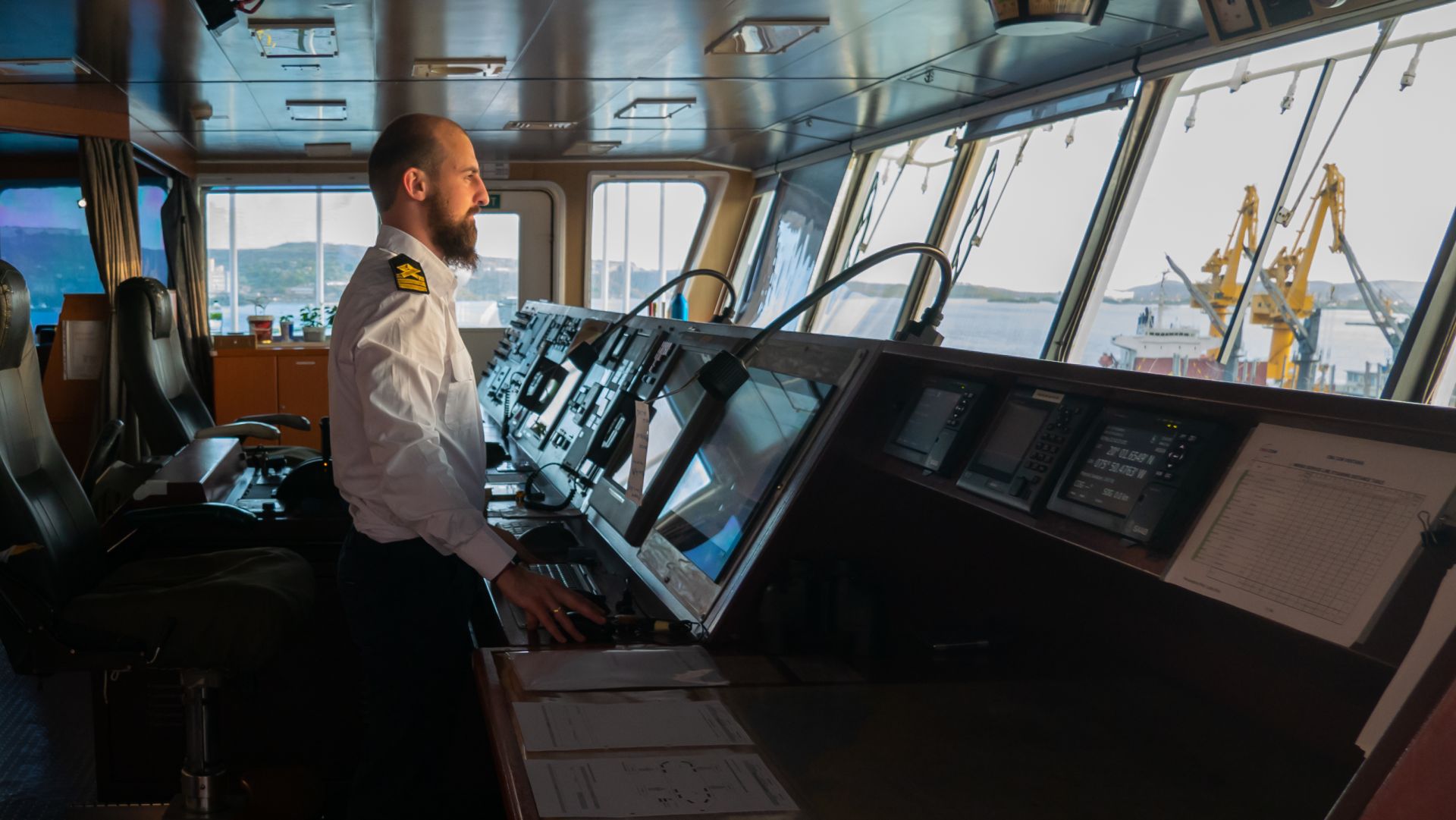Why the EU's Recognition of Seafarers as Essential Workers Matters: Implications for the Maritime Industry and Global Trade
Introduction
In a world where global trade hinges on the seamless movement of goods across borders, the role of seafarers often goes unnoticed. Yet, these professionals are the backbone of the maritime industry, ensuring that supply chains remain intact and economies stay afloat. On July 11, 2024, the European Union took a monumental step by officially recognizing seafarers as essential workers. This decision is more than just a label; it’s a recognition of their indispensable role in keeping global trade and industry in motion, especially during times of crisis.
The EU's recognition isn’t merely symbolic. It carries significant implications for the maritime industry, border management, and international trade at large. This blog looks into the background of this decision, explores why it’s critical, and examines its broader impact on the maritime industry and global commerce.

Background on the EU’s Decision
The EU’s decision to update the Schengen Borders Code represents a proactive approach to future-proofing the region’s border management policies. This update is not just a bureaucratic adjustment but a strategic enhancement aimed at better equipping EU member states to handle challenges at both external and internal borders, particularly during health emergencies.
The Schengen Borders Code, originally established to govern the movement of people across borders within the EU, was due for an update. The COVID-19 pandemic exposed vulnerabilities in existing regulations, particularly concerning the movement of essential personnel like seafarers. These workers, who are crucial to maintaining the flow of goods during global crises, found themselves trapped by restrictive border policies, unable to move freely between their homes and vessels.
The EU Council and Parliament’s recent agreement, which resulted in amendments to Regulation (EU) 2016/399, is a direct response to these challenges. Published in the Official Journal of the European Union on June 20, 2024, and entering into force on July 11, 2024, these amendments include the classification of seafarers as essential workers. This ensures that they are exempt from entry restrictions to the EU in the event of large-scale health emergencies, safeguarding their mobility and, by extension, the stability of global trade networks.
BIMCO, the world's largest international shipping association, has been a vocal advocate for this change, pushing for seafarers to be granted internationally recognized privileges. This move by the EU aligns with BIMCO's long-standing efforts to secure unhindered movement for seafarers, recognizing their critical role in maintaining the global supply chain.
Why Seafarers are Essential Workers
Seafarers play an indispensable role in the functioning of the global economy. Responsible for transporting approximately 90% of the world’s goods, these maritime professionals ensure that everything from food and medicine to raw materials and finished products reaches their intended destinations. Despite their critical contribution, the challenges faced by seafarers, especially during global crises, often go unnoticed by the broader public.
The COVID-19 pandemic brought these challenges into sharp focus. With countries closing their borders and imposing strict travel restrictions, thousands of seafarers found themselves stranded at sea, unable to disembark or return home. These restrictions not only affected the mental and physical well-being of seafarers but also threatened the continuity of global supply chains. The maritime industry faced unprecedented disruptions, with crew changes delayed, and ships stuck in ports, waiting for relief that was slow to come.
BIMCO, along with other maritime organizations, has long advocated for the recognition of seafarers as essential workers. This status is not just a matter of convenience; it is about acknowledging the critical nature of their work and ensuring that they are afforded the rights and protections they deserve. Being recognized as essential workers means that seafarers can move freely between their homes and ships, even during health emergencies. This recognition helps to prevent the kind of logistical and humanitarian crises that emerged during the pandemic, ensuring that seafarers can continue their vital work uninterrupted.

Moreover, the recognition of seafarers as essential workers is a step towards greater international alignment on their rights. While the EU’s decision marks a significant milestone, there is a broader call for other nations to follow suit. The maritime industry is inherently global, and consistent international standards are crucial for safeguarding the welfare of seafarers and the stability of global trade.
Implications of the EU’s Decision
The EU’s decision to classify seafarers as essential workers has far-reaching implications for the maritime industry and global trade. This recognition is more than just a policy update; it represents a fundamental shift in how seafarers are perceived and treated in international trade and logistics.
Impact on the Maritime Industry: For the maritime industry, this decision is a game-changer. Seafarers now have a legally recognized status that ensures their mobility across borders, even during crises. This not only alleviates the logistical nightmares that the industry faced during the COVID-19 pandemic but also provides a safeguard for future emergencies. The amendments to the Schengen Borders Code mean that member states are now better equipped to manage their borders without disrupting the essential flow of goods and services that the maritime industry facilitates.

This recognition also has implications for seafarers' well-being. With their essential status secured, seafarers can expect more stable working conditions, with fewer disruptions to crew changes and repatriation efforts. This stability is crucial for maintaining the morale and mental health of those who spend extended periods away from home, often under challenging conditions.
Impact on Global Trade and Supply Chains: Global trade, which relies heavily on the maritime industry, stands to benefit significantly from this decision. By ensuring that seafarers can continue their work without unnecessary hindrances, the EU is bolstering the resilience of global supply chains. During health emergencies or other large-scale crises, the movement of goods can continue with minimal disruption, helping to prevent the kind of supply chain bottlenecks that have had far-reaching economic consequences in recent years.
Moreover, this decision sends a strong signal to other regions and countries about the importance of maintaining the flow of global trade, even in times of crisis. It highlights the need for international cooperation and the harmonization of policies to ensure that essential workers, like seafarers, are able to carry out their duties unimpeded.
Implications for EU Member States: For EU member states, the updated Schengen Borders Code provides a clearer framework for managing their borders during emergencies. It enhances coordination among member states and ensures that essential workers, including seafarers, are prioritized in border management policies. This not only strengthens the EU’s internal cohesion but also improves its ability to respond to future crises with greater agility and effectiveness.
In essence, the EU’s recognition of seafarers as essential workers is a proactive step that addresses both immediate and long-term challenges faced by the maritime industry and global trade. It represents a commitment to supporting the people who keep the global economy moving, even in the face of adversity.
Broader Implications and Global Perspective
The EU’s recognition of seafarers as essential workers is a milestone that has broader implications beyond its immediate impact on the maritime industry and European borders. This decision sets a precedent that could encourage other nations and international bodies to follow suit, creating a more unified and resilient global framework for managing future crises.
Encouragement for Other States: The maritime industry is inherently global, with ships and crews crossing international waters and borders daily. The EU’s decision underscores the importance of having a coordinated international approach to the treatment of seafarers. By classifying them as essential workers, the EU has set a benchmark that other countries might be encouraged to adopt. This global recognition could lead to the creation of international conventions or agreements that grant seafarers the rights and privileges they need to perform their duties effectively, regardless of the country they are in.
BIMCO and other maritime organizations have long advocated for such international recognition, and the EU’s decision could provide the impetus needed to drive these efforts forward. As other nations observe the benefits of this policy within the EU, there could be a push towards broader adoption, leading to a more cohesive global maritime industry.

Potential for International Conventions: The EU’s move could also pave the way for new international conventions that formally recognize the essential status of seafarers. Such conventions could standardize the treatment of seafarers across different jurisdictions, ensuring that they have the same rights and protections wherever they are. This would not only benefit seafarers but also contribute to the stability and predictability of global trade.
International conventions could address a range of issues, from the right to unrestricted movement during emergencies to standardized working conditions and welfare provisions for seafarers. These conventions would need to be supported by a robust enforcement mechanism to ensure compliance by all signatory nations.
Long-Term Benefits for the Maritime Industry and Global Trade: In the long term, the EU’s decision and its potential ripple effects across the globe could lead to a more resilient maritime industry. By recognizing seafarers as essential workers, the industry can better protect its workforce and ensure that disruptions to global trade are minimized. This is particularly important as the world faces an increasingly unpredictable future, with challenges such as climate change, geopolitical tensions, and public health emergencies likely to affect global supply chains.
Moreover, a more standardized approach to seafarer recognition and welfare could make the maritime industry a more attractive career choice, addressing the ongoing issue of crew shortages. By ensuring that seafarers are treated with the respect and recognition they deserve, the industry can build a more stable and motivated workforce, which in turn contributes to the overall health of global trade.
Conclusion
The EU’s decision to recognize seafarers as essential workers is a landmark moment for the maritime industry and global trade. It reflects a growing awareness of the vital role that seafarers play in maintaining the flow of goods and services across the world, particularly during times of crisis. This recognition not only safeguards the rights and welfare of seafarers but also enhances the resilience of global supply chains, ensuring that they can withstand future challenges.
As other nations and international bodies take note of the EU’s move, there is hope that this recognition will inspire broader global adoption. The creation of international conventions and agreements that standardize the treatment of seafarers could lead to a more unified and resilient maritime industry, benefiting not only the workers themselves but also the global economy as a whole.
In the end, the EU’s recognition of seafarers as essential workers is not just about policy changes; it’s about acknowledging the critical role that these individuals play in our interconnected world. By supporting seafarers and ensuring their rights are protected, we are also safeguarding the future of global trade and the prosperity it brings.
References
- BIMCO. "EU Recognize Seafarers as Essential Workers." Published July 18, 2024.
- EUR-Lex. "Regulation (EU) 2024/1717 on the Schengen Borders Code.
- ShippingWatch. "EU recognizes seafarers as essential workers."
- Robban Assafina. "EU recognise seafarers as essential workers." Published July 26, 2024. 2024.
- SAFETY4SEA. "EU updates Schengen Borders Code to recognize seafarers as key workers." Published July 22, 2024.

Approved & Certified by Bureau Veritas

We are proud to be member of


